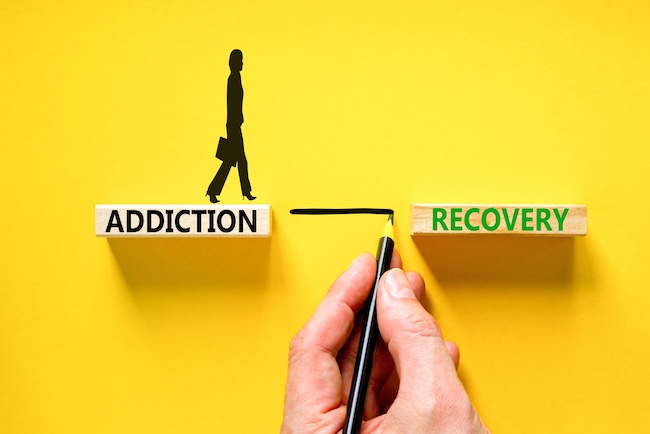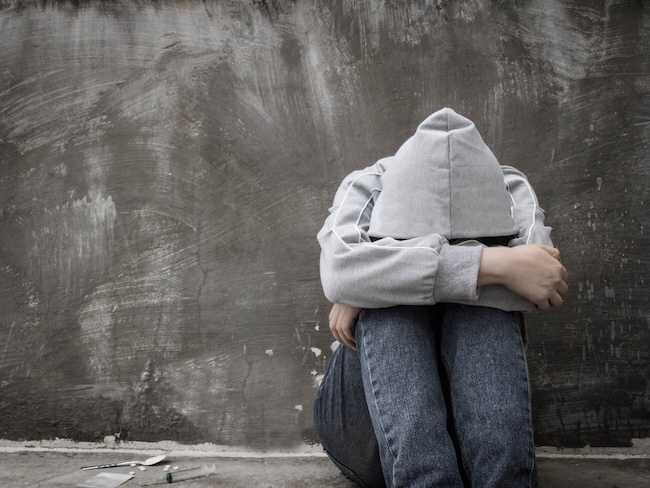At Carolina Recovery Center, we understand how overwhelming it can feel when bipolar disorder and addiction occur together. These conditions often feed into each other—mood swings may fuel substance abuse, and alcohol or drug use can worsen the symptoms of bipolar disorder. That’s why our team takes a compassionate, whole-person approach to bipolar and addiction treatment. We want you to know that you’re not alone, and healing is possible. In our rehab setting, we create a safe and supportive environment where you can begin stabilizing your mood, rebuilding your strength, and restoring hope for your future.
Because bipolar disorder and addiction affect every part of a person’s life, treatment must be comprehensive. Our team combines evidence-based therapies—such as counseling, behavioral therapies, medication support, and holistic approaches—to help individuals manage their symptoms and break the cycle of substance abuse. Whether you’re beginning treatment for the first time or returning to care, we tailor your plan to meet your unique needs. At Carolina Recovery Center, we are committed to guiding you toward lasting recovery with understanding, expertise, and unwavering support.
As a dual diagnosis treatment center, we address both substance use and co-occurring mental health conditions, providing a comprehensive approach to recovery. Through holistic therapies, compassionate support, and personalized care, individuals can reclaim their lives, rebuild relationships, and rediscover purpose beyond addiction.
What is Bipolar Disorder and its Symptoms?
Bipolar disorder is a mental health condition characterized by significant mood swings. These fluctuations can range from extreme highs, known as manic episodes, to debilitating lows, referred to as depressive episodes. During manic phases, individuals may experience heightened energy levels, increased activity, and impulsive behavior.
Conversely, depressive episodes can lead to feelings of sadness, hopelessness, and a lack of interest in daily activities. Substance use disorders can significantly impact recovery from episodes of bipolar depression, as research indicates a relationship between substance use and mood instability in bipolar patients.
The presence of other mental health disorders can further complicate the management of bipolar disorder, highlighting the need for integrated treatment approaches.
Types of Bipolar Disorder
Bipolar disorder is classified into several types, primarily bipolar I and bipolar II. Bipolar I is defined by the occurrence of at least one manic episode, often accompanied by depressive episodes. In contrast, bipolar II involves a pattern of depressive episodes and hypomanic episodes, which are less severe than full manic episodes.
Understanding bipolar disorder is crucial, as it affects how individuals cope with daily life, relationships, and can significantly impact overall well-being. Early recognition and intervention are key to managing symptoms effectively and improving quality of life. The presence of anxiety disorders can complicate the identification and treatment of bipolar disorder, requiring a thorough and nuanced approach to diagnosis.
The Link Between Bipolar Disorder and Addiction
Bipolar disorder and addiction often intersect, creating a complex landscape for those affected. Many individuals with bipolar disorder may turn to substances as a way to cope with their symptoms. The prevalence of drug or alcohol addiction in individuals with bipolar disorder is significant, highlighting the chronic nature of addiction and its impact on treatment outcomes and overall well-being.
This can lead to a cycle of substance use that exacerbates the challenges of managing bipolar disorder. Mental illness, including bipolar disorder, can be a significant risk factor for substance use disorders, further complicating the individual’s condition. The prevalence of co-occurring mental health disorders, such as anxiety and depression, further complicates the treatment landscape for individuals with bipolar disorder and addiction.
Co-Occurring Bipolar Disorder and Substance Use Disorder
Co-occurring disorders occur when an individual struggles with both bipolar disorder and a substance use disorder. This dual challenge can complicate treatment and recovery. People with bipolar disorder may experience heightened moods during manic episodes, leading to impulsive behaviors, including substance abuse. Drug abuse can complicate the diagnosis and treatment of bipolar disorder, as the symptoms of both conditions can often overlap, leading to challenges in distinguishing between them.
Conversely, depressive episodes may drive individuals to seek relief through alcohol or drugs, creating a harmful dependency. Anxiety disorders are also common among individuals with co-occurring bipolar disorder and substance use disorder, adding another layer of complexity to treatment.
Causes of Co-Occurring Disorders
Several factors contribute to the development of co-occurring disorders. Genetic predisposition plays a significant role, as individuals with a family history of either condition may be at increased risk. Environmental influences, such as trauma or chronic stress, can also trigger both bipolar symptoms and substance abuse. Certain risk factors may increase the likelihood of developing bipolar disorder in individuals already facing substance use disorders.
Furthermore, the symptoms of bipolar disorder—such as mood swings and emotional instability—can make it challenging for individuals to maintain healthy coping mechanisms, leading them to substances as a form of self-medication. Anxiety disorders can also contribute to the development of co-occurring bipolar disorder and substance use disorders, as individuals may use substances to alleviate anxiety symptoms.
Understanding the intricate relationship between bipolar disorder and addiction is crucial for effective treatment. Addressing both conditions simultaneously enhances the chances of recovery, allowing individuals to reclaim their lives and achieve lasting wellness.
The Importance of Mental Health in Addiction Treatment
Addiction is rarely just about substance use—it’s often a response to unresolved trauma, chronic stress, or underlying mental health conditions. Many individuals struggling with addiction also face co-occurring disorders such as depression, anxiety, PTSD, bipolar disorder, or ADHD.
This is why Dual Diagnosis treatment is essential for true healing. At Carolina Recovery Center, we recognize that overcoming addiction requires addressing both substance use and mental health together, ensuring a comprehensive and lasting recovery.
Among co-occurring disorders, bipolar disorder presents unique challenges. Characterized by extreme mood swings, individuals with bipolar disorder often oscillate between depressive episodes and manic or hypomanic states. In an attempt to self-regulate these fluctuations, many turn to alcohol or drugs as a coping mechanism.
Unfortunately, substance use only exacerbates the instability, creating a destructive cycle. Our approach to treatment specifically addresses these complexities, ensuring that both addiction and bipolar disorder are managed simultaneously for lasting recovery.
Bipolar Disorder and Addiction: The Cycle of Mood Swings and Substance Abuse
Substance use is often someone’s best attempt to cope when they don’t see another option. A person struggling with undiagnosed bipolar disorder may turn to alcohol or drugs to escape overwhelming mood shifts. However, this creates a destructive cycle: addiction worsens mood instability, and worsening mood swings fuel further substance use.
During manic phases, individuals may feel invincible, leading to reckless drug or alcohol consumption. In depressive episodes, substances may be used to numb the emotional pain. Over time, this pattern leads to increased tolerance, dependence, and addiction. Without targeted treatment, both conditions reinforce each other, making it difficult to sustain recovery.
Diagnosing bipolar disorder alongside addiction can be challenging. Both conditions share similar symptoms, which can complicate the clinical picture. Bipolar disorder is a significant mental health disorder characterized by fluctuations in mood and energy levels. Accurate diagnosis is crucial for effective treatment. The presence of other mental health disorders can complicate the diagnostic process, requiring a thorough and integrated approach to assessment.
Diagnosing Bipolar Disorder and Addiction
What is Dual Diagnosis?
A dual diagnosis occurs when someone experiences both a substance use disorder and a mental health condition. These disorders are deeply intertwined—addiction can be a way to self-medicate symptoms of anxiety or depression, while prolonged substance use can worsen mental health. Common co-occurring disorders include:
- Bipolar Disorder – Manic highs can lead to impulsive behaviors, including substance use, while depressive lows can drive self-medication with alcohol or drugs.
- Depression – Feelings of hopelessness and despair can drive substance use as a temporary escape.
- Anxiety Disorders – Chronic worry and fear may lead to reliance on substances for relief.
- PTSD & Trauma – Unresolved trauma often fuels addiction as individuals seek numbing effects.
- ADHD & Impulse Control Disorders – Those struggling with focus and regulation may turn to substances to cope.
Effective treatment requires an integrated approach that treats both addiction and the mental health conditions fueling it.
Diagnostic Tests for Bipolar Disorder
Healthcare professionals often utilize various tools to diagnose bipolar disorder. The Diagnostic and Statistical Manual of Mental Disorders (DSM-5) outlines specific criteria for identifying the disorder. Clinicians may conduct a comprehensive interview to gather information about your mood history, behavior patterns, and any substance use. In some cases, standardized questionnaires may also be used to assess symptoms.
Anxiety disorders should also be considered during the diagnostic process, as they can influence the presentation and severity of bipolar symptoms.
For those with suspected co-occurring disorders, a thorough evaluation is essential. This evaluation may include:
● A detailed medical history
● Psychological assessments
● Substance use history
These assessments help distinguish between bipolar symptoms and those resulting from substance abuse.
Addiction Symptoms and Diagnosis
Addiction is usually diagnosed by looking at a person’s behaviors, health history, and symptoms to see how substance use is affecting their life. A psychiatrist, psychologist, or licensed alcohol and drug counselor will talk with the person, ask questions, and review how drug or alcohol addiction has impacted their daily activities, relationships, and well-being. This helps determine whether the person meets the criteria for a substance use disorder.
During the evaluation, the clinician also checks for specific signs that may show addiction is developing or getting worse. These symptoms make it easier to understand how serious the problem is and what type of treatment may be needed.
Common signs of addiction include:
- Trouble controlling or limiting substance use
- Strong cravings or urges to use
- Continuing use even when it causes problems
- Feeling sick or uncomfortable when not using
- Needing more of the substance to get the same effect
- Ignoring responsibilities or losing interest in activities
- Spending a lot of time getting, using, or recovering from substances
Our Approach to Treating Bipolar Disorder and Addiction
At Carolina Recovery Center, we understand that bipolar disorder and addiction often intertwine, making recovery more complex. That’s why we offer a specialized dual diagnosis program that addresses both conditions simultaneously, ensuring individuals receive the comprehensive care they need to heal fully.
Our approach integrates evidence-based therapy, holistic healing, and medical support, creating a well-rounded path to lasting recovery.
Key Components of Our Treatment Approach:
✅ Personalized Treatment Plans – Every individual’s journey with bipolar disorder and addiction is unique. We develop tailored treatment plans that consider specific mood disorder symptoms, addiction triggers, and personal recovery goals.
✅ Mood Stabilization & Medication Management – Properly prescribed mood stabilizers, antipsychotic medications, or other necessary treatments help regulate bipolar symptoms, reducing mood swings and decreasing reliance on substances. Our medical team closely monitors each individual’s progress to ensure optimal medication effectiveness.
✅ Cognitive Behavioral Therapy (CBT) & Dialectical Behavioral Therapy (DBT) – These evidence-based therapies help individuals recognize unhealthy thought patterns, regulate emotions, and develop effective coping strategies. By learning to manage stress, anxiety, and impulsivity, individuals can better navigate recovery.
✅ Trauma-Informed Care – Many individuals struggling with bipolar disorder and addiction have experienced past trauma. Our trauma-informed approach creates a safe, supportive environment to process and heal from these experiences without triggering further distress.
✅ Holistic Healing Practices – We incorporate mindfulness techniques, yoga, meditation, structured exercise routines, and personalized nutrition plans to support emotional and physical well-being. These holistic approaches help restore balance and promote overall stability.
✅ Peer Support & Group Therapy – Addiction and bipolar disorder can feel isolating, but healing happens in connection. Through group therapy and peer support, individuals find encouragement, understanding, and shared strength in a community of others on similar journeys.
At Carolina Recovery Center, our expert clinicians work closely with each individual, ensuring they receive the appropriate medical, therapeutic, and emotional support to manage bipolar disorder while progressing in addiction recovery. By treating both conditions together, we empower individuals to reclaim control of their lives and build a healthier, more stable future.
The Healing Process: What to Expect
Step 1: Comprehensive Psychiatric and Addiction Assessment
A thorough evaluation helps us understand both substance use and mental health concerns, ensuring a personalized treatment plan.
Step 2: Detox & Mood Stabilization
For those in active addiction, medically supervised detox helps safely manage withdrawal symptoms. Simultaneously, medication-assisted treatment (MAT) is provided when necessary to stabilize mood fluctuations.
Step 3: Intensive Therapy & Skill-Building
Through individual and group therapy, individuals learn to identify triggers, process trauma, and develop healthy coping mechanisms that prevent relapse.
Step 4: Long-Term Support & Aftercare
Recovery doesn’t end after treatment. We provide aftercare planning, alumni programs, and relapse prevention tools to ensure long-term success. Ongoing psychiatric care helps manage bipolar disorder symptoms beyond initial treatment.
Support Beyond Treatment
Healing extends beyond the walls of treatment. We help individuals rebuild their lives by:
- Strengthening relationships with family and friends through family therapy.
- Developing career and educational goals to establish purpose and stability.
- Engaging in healthy lifestyle practices like exercise, nutrition, and mindfulness.
- Participating in recovery communities and support groups tailored for dual diagnosis individuals.
Our commitment doesn’t end when treatment does—we provide ongoing psychiatric care, medication management, and recovery resources to support long-term stability.
Why Choose Carolina Recovery for Bipolar and Addiction Treatment?
At Carolina Recovery, we understand the intricate relationship between bipolar disorder and addiction. Our treatment center stands out for its commitment to providing comprehensive care tailored to the unique needs of each individual. Our comprehensive approach ensures that all co-occurring mental health disorders are addressed, providing a holistic path to recovery.
Our Personalized and Integrative Approach
We focus on a holistic treatment model that addresses both bipolar disorder and substance use disorder simultaneously. This dual diagnosis approach is crucial, as treating one condition without the other can lead to setbacks in recovery.
Our team of experienced professionals utilizes evidence-based practices to create customized treatment plans. By integrating therapy, medication management, and support services, we aim to foster long-term recovery and improve overall mental health. Our treatment plans also address co-occurring anxiety disorders, ensuring a comprehensive approach to mental health care.
Family-Led Mentality and Empathetic Care
At Carolina Recovery, we believe in the power of family support during the recovery journey. Our family-led mentality means that we involve loved ones in the treatment process, promoting a supportive environment that enhances healing. We prioritize empathy and compassion, ensuring that every patient feels understood and valued.
Our dedicated staff provides ongoing support, guiding individuals and their families through the challenges of recovery. We provide support for all co-occurring mental health disorders, ensuring that each patient receives comprehensive and empathetic care.
Choosing Carolina Recovery means selecting a path towards healing that is grounded in understanding and respect. We are here to help individuals navigate the complexities of bipolar disorder and addiction, offering hope and a brighter future.
Convenient Dual Diagnosis Treatment Centers Locations
At Carolina Recovery, we understand that access to quality care is essential for those battling bipolar disorder and addiction. Our treatment centers are strategically located across North Carolina to serve a diverse population. This ensures that individuals and families can find the support they need close to home. Our treatment centers are equipped to address all co-occurring mental health disorders, providing comprehensive care close to home.
Getting Started with Carolina Recovery
Taking the first step towards recovery can feel overwhelming. At Carolina Recovery, we simplify this process. Our admissions team is available to guide you through every aspect of starting treatment. From initial assessments to creating personalized care plans, we are committed to making your journey as smooth as possible. Our initial assessments include a thorough evaluation of all co-occurring mental health disorders to create a personalized treatment plan.
If you or a loved one is struggling with bipolar disorder and addiction, reach out to us today. Our compassionate team is ready to help you find the right path towards recovery.
FAQ: Bipolar Disorder and Addiction
What is the connection between bipolar disorder and addiction?
Bipolar disorder and addiction often co-occur because individuals may use substances to self-medicate extreme mood swings. The impulsivity associated with bipolar disorder increases the risk of substance abuse, leading to a cycle of dependence that worsens both conditions. Dual diagnosis treatment is essential for managing both disorders simultaneously.
How does addiction affect bipolar disorder?
Addiction can intensify the symptoms of bipolar disorder, making mood swings more severe and medication less effective. Substance use can trigger manic or depressive episodes, making it harder to achieve stability. Proper treatment addresses both conditions together for long-term recovery.
Why do people with bipolar disorder struggle with substance abuse?
Many individuals with bipolar disorder turn to drugs or alcohol to cope with extreme emotional highs and lows. Manic episodes may lead to risky behaviors, including excessive substance use, while depressive episodes may drive individuals to self-medicate. Dual diagnosis treatment helps break this cycle.
What is dual diagnosis treatment for bipolar disorder and addiction?
Dual diagnosis treatment is an integrated approach that addresses both bipolar disorder and substance use disorder at the same time. This includes mood stabilization, medication management, behavioral therapy, and relapse prevention strategies to support long-term recovery.
Can bipolar disorder be treated without medication if I have an addiction?
While some holistic approaches can support mental health, medication is often necessary for stabilizing bipolar disorder. Medical professionals work to find safe, non-addictive medications that help regulate mood without interfering with addiction recovery.
What are the best therapies for treating bipolar disorder and addiction?
Cognitive Behavioral Therapy (CBT) and Dialectical Behavioral Therapy (DBT) are among the most effective therapies for treating both bipolar disorder and addiction. These therapies help individuals manage triggers, improve emotional regulation, and develop healthy coping strategies.
How long does dual diagnosis treatment take for bipolar disorder and addiction?
The length of treatment varies based on the severity of both conditions. Most individuals benefit from at least 60 to 90 days of inpatient or intensive outpatient care, followed by ongoing therapy and support to maintain long-term recovery.
Can I recover from addiction if I have bipolar disorder?
Yes, with the right treatment plan, individuals with bipolar disorder can achieve lasting sobriety. Dual diagnosis treatment provides the tools to manage both conditions, reduce relapse risk, and improve overall mental health.
How do I find the best dual diagnosis treatment for bipolar disorder and addiction?
Look for a treatment center that specializes in dual diagnosis care, offering medical stabilization, therapy, and long-term support for both bipolar disorder and substance use disorder. A comprehensive program that includes medication management and behavioral therapy is crucial for success.
Taking the First Step Towards Recovery
Taking the first step toward recovery from bipolar disorder and addiction can feel overwhelming. However, reaching out for help is crucial. At Carolina Recovery, we are committed to providing the support and guidance you need. Addressing all co-occurring mental health disorders is crucial for a successful recovery journey.
Contact Us for a Consultation
Our team is here to listen and understand your unique situation. We offer confidential consultations to assess your needs and discuss treatment options. Whether you are experiencing bipolar symptoms or struggling with substance use, we are ready to help you navigate your path to wellness. Our consultations include a comprehensive evaluation of all co-occurring mental health disorders to ensure a holistic treatment approach.
To schedule your consultation, please call us or fill out our online form. We will respond promptly to your inquiry.
Remember, you are not alone in this journey.
With Carolina Recovery, you can find hope and healing. Your recovery starts here. (812) 408-8842








